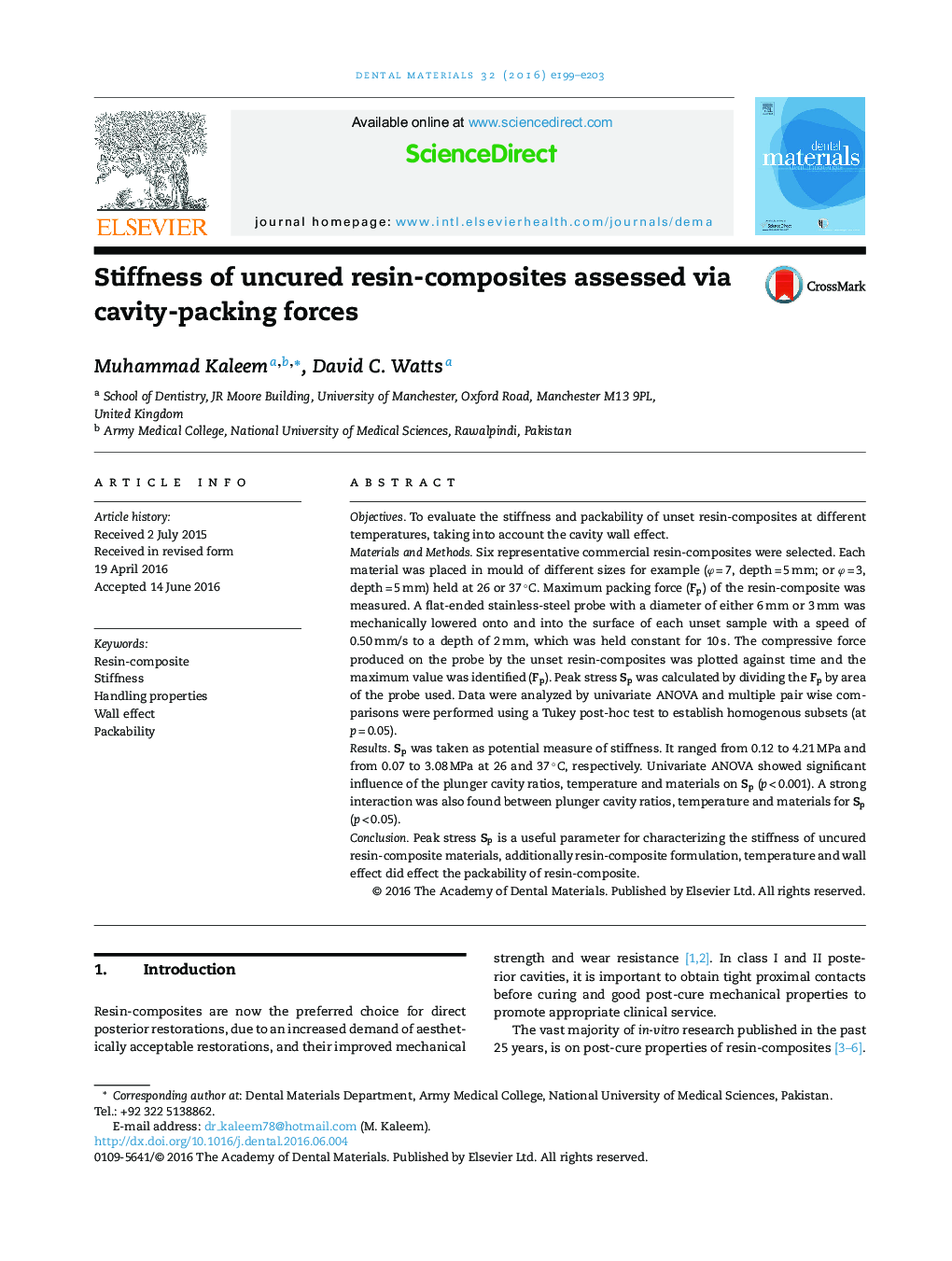| Article ID | Journal | Published Year | Pages | File Type |
|---|---|---|---|---|
| 1420372 | Dental Materials | 2016 | 5 Pages |
ObjectivesTo evaluate the stiffness and packability of unset resin-composites at different temperatures, taking into account the cavity wall effect.Materials and MethodsSix representative commercial resin-composites were selected. Each material was placed in mould of different sizes for example (φ = 7, depth = 5 mm; or φ = 3, depth = 5 mm) held at 26 or 37 °C. Maximum packing force (Fp) of the resin-composite was measured. A flat-ended stainless-steel probe with a diameter of either 6 mm or 3 mm was mechanically lowered onto and into the surface of each unset sample with a speed of 0.50 mm/s to a depth of 2 mm, which was held constant for 10 s. The compressive force produced on the probe by the unset resin-composites was plotted against time and the maximum value was identified (Fp). Peak stress Sp was calculated by dividing the Fp by area of the probe used. Data were analyzed by univariate ANOVA and multiple pair wise comparisons were performed using a Tukey post-hoc test to establish homogenous subsets (at p = 0.05).ResultsSp was taken as potential measure of stiffness. It ranged from 0.12 to 4.21 MPa and from 0.07 to 3.08 MPa at 26 and 37 °C, respectively. Univariate ANOVA showed significant influence of the plunger cavity ratios, temperature and materials on Sp (p < 0.001). A strong interaction was also found between plunger cavity ratios, temperature and materials for Sp (p < 0.05).ConclusionPeak stress Sp is a useful parameter for characterizing the stiffness of uncured resin-composite materials, additionally resin-composite formulation, temperature and wall effect did effect the packability of resin-composite.
